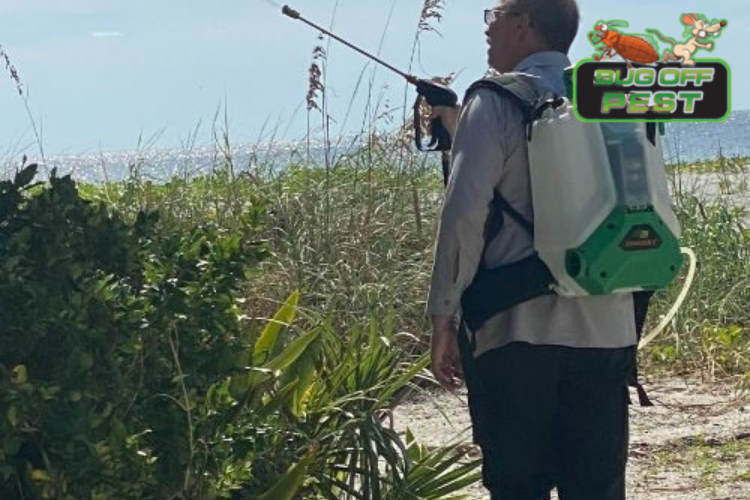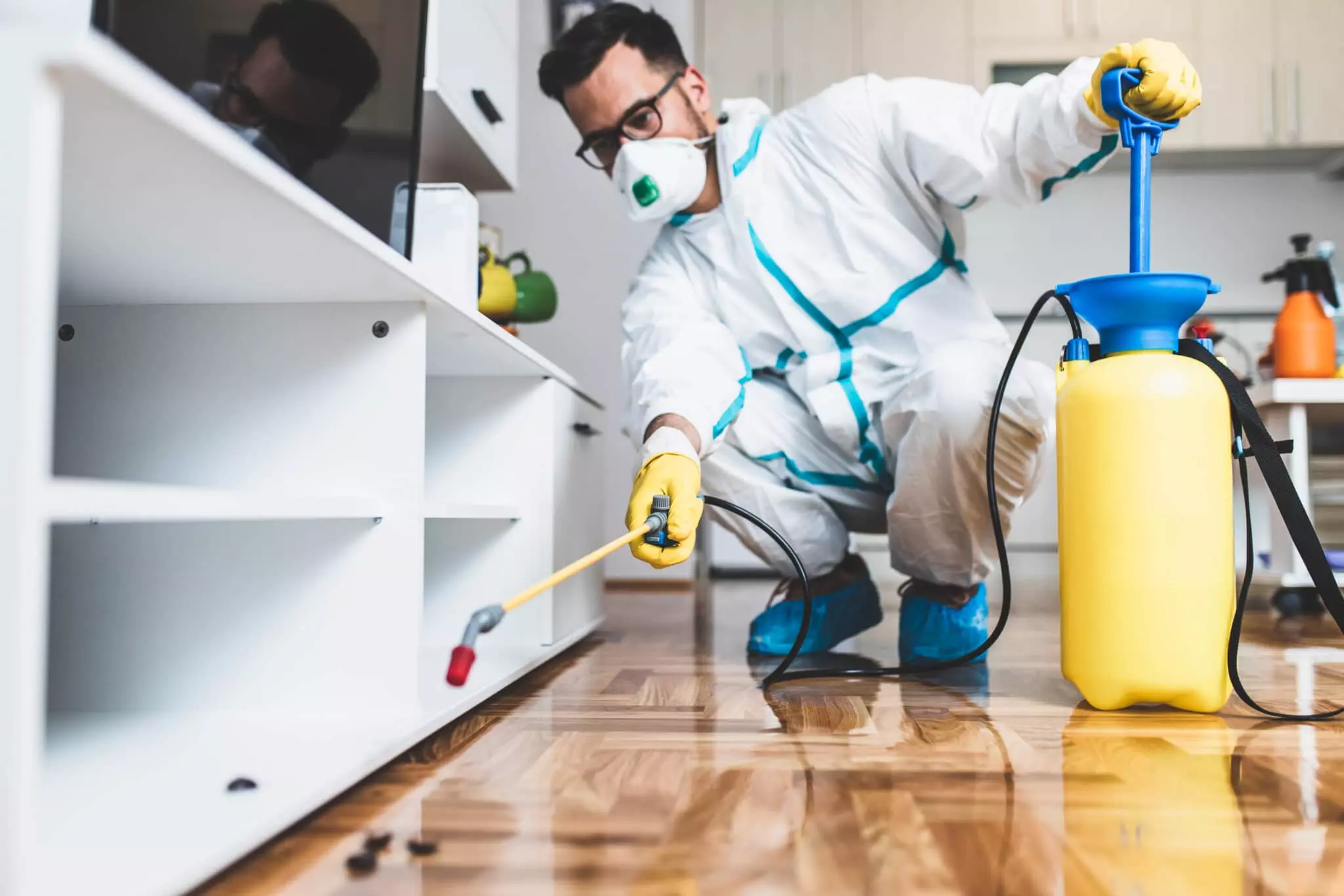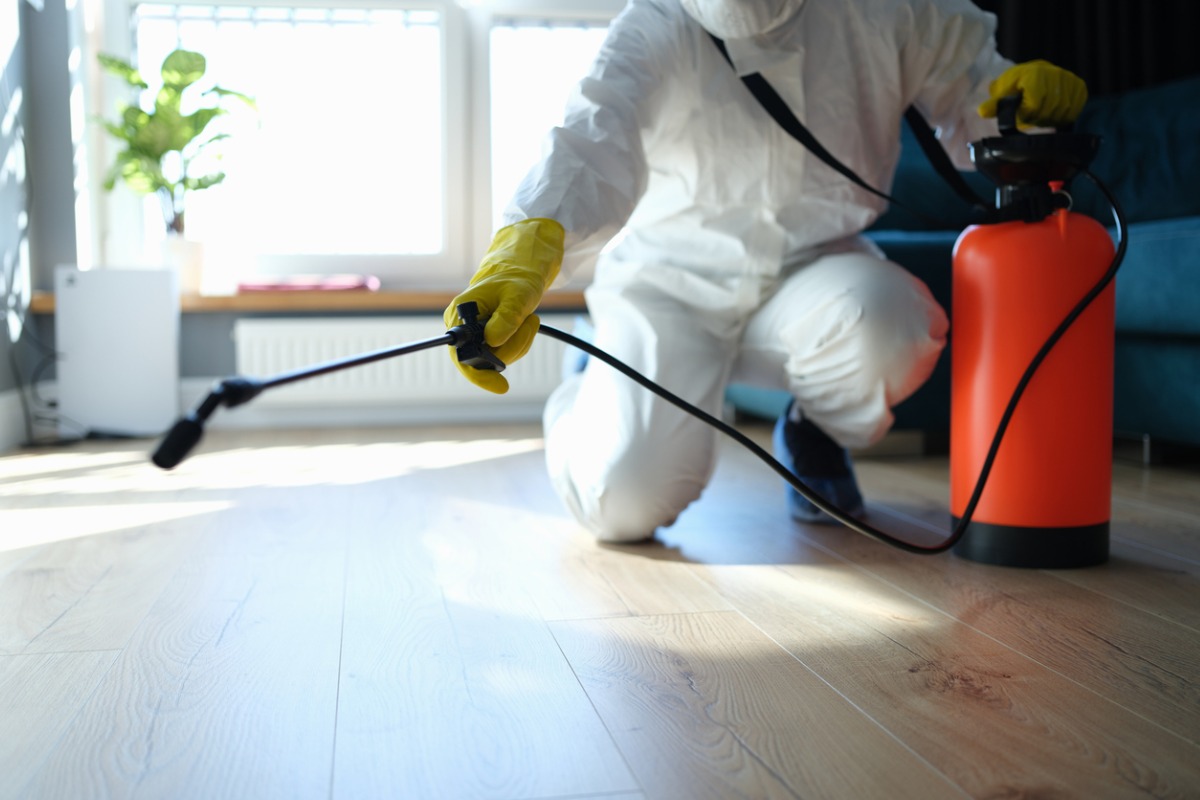Reliable Pest Control in Port Charlotte to defend your living space and family.
Reliable Pest Control in Port Charlotte to defend your living space and family.
Blog Article
Exploring Ingenious Techniques and Products for Reliable Bug Control
The landscape of pest control is developing, noted by the appearance of cutting-edge strategies and products developed to improve effectiveness and sustainability. From wise traps geared up with sophisticated surveillance systems to biological approaches that utilize all-natural killers, these developments offer a paradigm change in exactly how we approach pest management. Environmentally friendly chemical choices and scent disturbance strategies provide targeted options that line up with ecological stewardship. As the sector grapples with these advancements, a closer exam exposes not only their implications but also the prospective difficulties that may arise in their implementation.
Smart Traps and Keeping An Eye On Solutions
Just how can modern innovation improve insect monitoring? One considerable innovation is the growth of smart catches and checking systems, which supply real-time information and analytics for effective pest control. These systems make use of sensors and cordless innovation to identify parasite activity, signaling home managers and parasite control experts to infestations prior to they escalate.
Smart catches are furnished with features such as bait terminals that draw in bugs and record them successfully. These catches can be monitored remotely, permitting timely treatments and lessening the need for substantial chemical applications. Additionally, the integration of artificial intelligence formulas allows these systems to distinguish in between target insects and non-target species, boosting the precision of insect control actions.
In addition, the data collected from wise traps can be evaluated to recognize patterns in parasite habits and ecological elements contributing to infestations (Pest Control in Port Charlotte). This information is invaluable for developing targeted pest management approaches customized to certain atmospheres. By accepting wise catches and keeping track of systems, bug control specialists can enhance their operational efficiency and minimize the ecological effect of parasite management, ultimately causing more secure and much more lasting practices in the industry
Biological Bug Control Approaches
Utilizing natural predators and bloodsuckers, organic pest control techniques supply an ecologically friendly alternative to chemical treatments. This method involves the intro or enhancement of particular organisms that can normally control bug populations, thereby reducing dependence on synthetic pesticides. Usual examples include using ladybugs to manage aphid infestations and parasitical wasps to target caterpillars.

Organic control can be classified right into 3 major techniques: timeless, augmentative, and preservation. Classical organic control entails importing natural opponents from the parasite's indigenous environment, while augmentative control includes boosting the population of existing all-natural opponents through releases. Preservation methods concentrate on creating problems that support these valuable organisms in the ecosystem.
The effectiveness of biological insect control rests on recognizing the complex communications within communities. It often calls for a thorough assessment of bug dynamics and the life process of both the insects and their all-natural adversaries. While organic techniques may not offer immediate outcomes like chemical alternatives, they add to content long-term insect monitoring and ecosystem health and wellness. As awareness of ecological issues grows, organic pest control techniques are increasingly acknowledged for their sustainable role in incorporated parasite administration programs.
Eco-Friendly Chemical Alternatives
Eco-friendly chemical alternatives provide a practical remedy for insect management that lessens environmental impact while efficiently regulating insect populations. These alternatives are originated from natural resources and are carefully formulated to target specific insects without damaging helpful microorganisms, making them a necessary element of sustainable parasite control methods.
Amongst one of the most efficient environmentally friendly options are plant-based pesticides, such as neem oil and pyrethrin, which are acquired from the seeds and flowers of different hop over to these guys plants. These substances interrupt the life process of bugs, lowering their populations without the toxic impacts connected with standard pesticides - Pest Control in Port Charlotte. Additionally, essential oils like pepper mint and clove oil exhibit repellent residential or commercial properties, even more improving their energy in parasite management

Moreover, environmentally friendly chemical choices typically break down faster in the setting, minimizing the risk of soil and water contamination. This particular aligns with the increasing customer need for lasting techniques in agriculture and urban bug control. As research study continues to advance, the advancement of cutting-edge eco-friendly solutions will certainly additionally boost efficacy and expand application areas, allowing pest monitoring specialists to adopt greener, a lot more accountable techniques in their methods while guarding human wellness and the setting.
Pheromone Interruption Techniques
Another innovative method in lasting bug management is making use of pheromone disruption techniques. These methods exploit the natural chemical signals, or pheromones, that pests make use of for interaction, specifically in breeding actions. By interrupting these signals, pest populaces can be effectively managed without considering unsafe chemicals.
Pheromone traps are generally utilized in this strategy. Over time, this can lead to a significant decline in pest populations.

Integrated Insect Monitoring Methods
Reliable insect control commonly requires a detailed technique, and Integrated Pest Management (IPM) techniques supply a structure for achieving this goal. IPM incorporates different administration techniques to minimize insect populations while minimizing dependence on chemical pesticides. This multifaceted method starts with thorough monitoring and identification of bugs, enabling targeted interventions based upon certain bug stress.
Social practices, such as crop rotation and cleanliness, play an important role in stopping bug facility. Organic controls, including natural predators and parasitoids, are used to preserve bug populaces at convenient degrees. When necessary, selective chemical therapies are applied, stressing reduced poisoning to non-target types and the atmosphere.
Furthermore, education and outreach are essential parts of IPM, advertising awareness amongst stakeholders concerning lasting methods and pest life process. The versatility of IPM enables specialists to respond effectively to changing bug characteristics and ecological conditions. By using this all natural technique, IPM not only enhances bug control efficiency but additionally adds to long-lasting eco-friendly equilibrium. Inevitably, Integrated Pest Monitoring stands for a forward-thinking service that aligns agricultural efficiency with environmental stewardship, making it vital in contemporary parasite control approaches.

Verdict
Finally, the combination of ingenious methods and items for effective parasite control represents a substantial improvement in lasting pest management. Smart traps and keeping track of systems, organic insect control methods, eco-friendly chemical alternatives, and scent disturbance techniques collectively boost the effectiveness of insect administration methods. By taking on these methods, the dependence on standard pesticides can be minimized, advertising ecological health while guaranteeing reliable parasite control. Proceeded r & d in these locations will better enhance bug monitoring practices.
Report this page